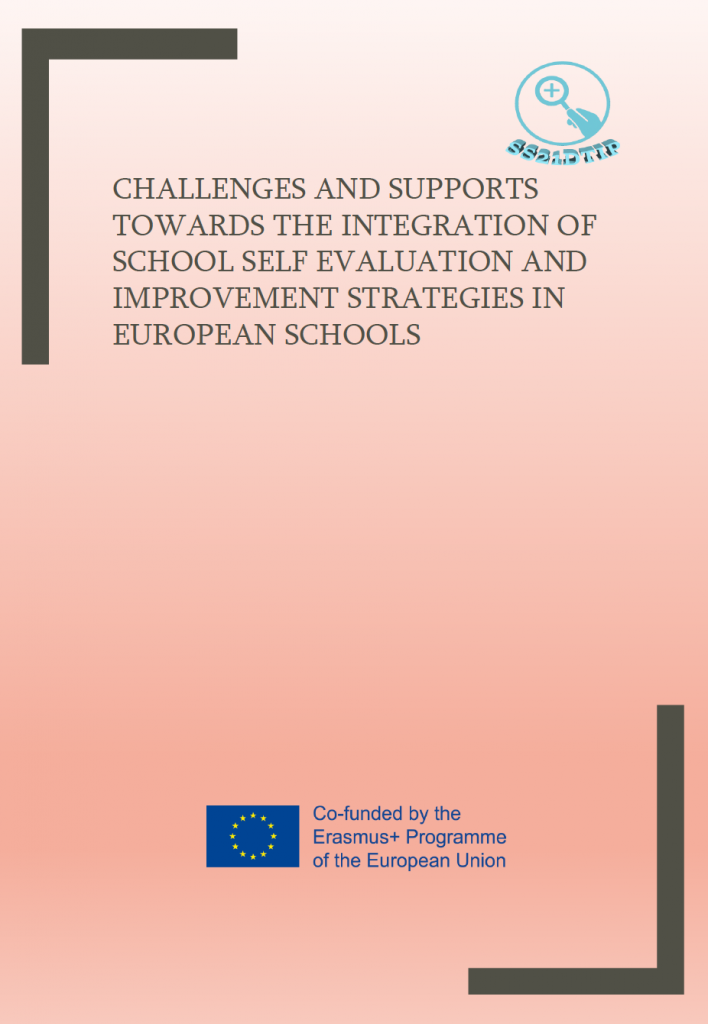Based on the literature review, survey and conceptual map a case study protocol will be developed in each of the project partner’s first language. The description of the four cases, as a result of the analysis, will also be translated into the three languages that are part of this project team. This makes our results accessible to countries with school evaluations who do not frequently engage in English-speaking publications and reporting.
Elements of innovation
The creation of the case study will enable an investigation into the extent to which schools currently engage in Data Informed Evaluation and Planning. These case studies will provide an in depth analysis of the topic at an educational system level and will provide a rich and textured overview of actual practices within the case study schools.
Expected Impact
The case studies will inform the project partners thoroughly on the state of affairs in their own educational system and of the other partner countries. The results will enable the identification of specific areas that are of particular interest and in strong need for support. This will have a particular impact on the development of the toolkit.
O2 will be coordinated by PERIFERIAKI DIEFTHINS (PDE) and will involve all partners.
The discussions planned for in this Output will take place at project meetings and in the course of bi-monthly Skype / online meetings. Each partner will be required to bring a local contextual perspective to the creation process.
O2-A1 Identifying schools for case studies
Given that the essential foundation of the case study is the subject and relevance there will be a deliberate attempt to isolate a small study group, which represents a particular population. In this case it is intended that the population will be schools who have experience of or interest in the creation of educational evaluation plans. It is likely that the schools will be drawn from the primary, secondary and further education sectors. Each partner country will be required to find up to 5 case study schools to work with.
The methodology for choosing them will be proposed by PDE and will be agreed collectively.
O2-A2 Creation of case study protocol – using conceptual framework as the theoretical basis
PDE , in discussion with the other partners, will propose a case study protocol.
Initially a decision will be made by the partnership regarding the type of case study to be adopted drawing on Yin’s (1984) differentiation between:
- Exploratory
- Descriptive
- Explanatory
As context plays a critical role in any case study the input of each partner country will be critical to the creation of the case study protocol. They will be required to:
- Provide a rationale for case study school choice
- Provide an overview of each of the schools focusing on governance, management, organisational and engagement profiles
The protocol created will be a mixed methods protocol drawing on both qualitative and quantitative data. It will base its data identification and collection processes on
- The conceptual map
- The literature review
O2-A3 Gaining consent and informed assent for all participants
From a project perspective informed consent is considered critically important. Fundamentally it is about people’s understanding and willingness to participate in our project and not about signing a form.
O2-A4 Conducting Case Studies
Each partner will conduct case study research in their own countries.
They will be required to store multiple sources of evidence comprehensively and systematically, in formats that can be referenced and sorted so that converging lines of inquiry and patterns can be uncovered.
The partners will carefully observe the object of the case study and identify causal factors associated with the identified School Self Evaluation and planning phenomenon.
It is acknowledged that renegotiation of arrangements with the schools or addition of questions to interviews may be necessary as the study progresses. If this situation does arise changes can only be made in consultation with the the Output coordinator.
Although case study research is flexible, but when changes are made, they are documented systematically.
Case studies use field notes and databases to categorize and reference data so that it is readily available for subsequent reinterpretation.
Field notes record feelings and intuitive hunches, pose questions, and document the work in progress and each partner will be required to keep these notes in an agreed template. They record testimonies, stories, and illustrations which can be used in later reports. They assist in determining whether or not the inquiry needs to be reformulated or redefined based on what is being observed.
O2-A5 Each country will analyse and write up the findings from the case studies in their country
PDE will provide a scheme for data analysis which will seek to facilitate sense making of the information emerging from the case studies using the key categories identified.
Partners will be asked to engage with raw data using many interpretations in order to find linkages between the research object and the outcomes with reference to the original research questions. Throughout the evaluation and analysis process, the partners remains open to new opportunities and insights. The case study method, with its use of multiple data collection methods and analysis techniques, will provide the partners with opportunities to triangulate data in order to strengthen the findings and conclusions.
The outcomes will be placed on the project website and included in all reports and publications
As it is planned to use concrete staff resources in the production of this output, it is important to identify the tasks that will be carried out by administrative staff and managers
- Administrative staff will be required to distribute and organise templates and information and collect requirements from participants in this output’s development.
- Managers will be required to develop (leading organisation) and implement (participating organisations) an output development plan; to develop project assets; to define and sequence actions.

